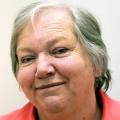
West Cumbria, including all Allerdale and Copeland is taking part in a national pilot scheme Turning the Spotlight
This sees the service becoming involved with families and family relationships and is aimed at trying to work on problems in family tensions where there are concerns that these problems could escalate into violence.
The programme has been funded by the Cumbrian Police and Crime Commission to offer “extensive support” to the victim or perpetrators of domestic abuse or harm.
Sophia Atcha, is Domestic Abuse prevention worker with Victim Support. She works with a Victims Advocate in Maryport, covering West Cumbria. There are six workers across the country.
She said the advocates deal with low to medium risk situations and their strength lies in their non-judgemental attitudes.
"We don't use the pejorative words such as domestic abuse or abuser or even victim. There is no blame and no judgement.
“This is a purely voluntary programme. People can join and leave as they wish, and they come with the assurance that they will not be judged.”
She said it is still in its early stages but, if successful, the Cumbria model could be rolled out elsewhere in the country.
The programme encourages conflict managteme4nt by running courses for men and women where the spotlight, as the name suggests, is turned upon participants – encouraging them to think about working to resolve relationship issues and what steps they themselves could take to help towards this goal.
An important aspect is to make it as non-threatening as possible: “We have some fun during the course. It is not all hard and heavy, Participants feel safe to explore ideas and concepts.”
The organisation carries out mediation with clients as well as working with individuals’ partners and families.
She said it genuinely gives some the chance to be healed.
“We have had some successes so far with partners getting back together and healing their relationship. Some don’t stay together but that is also okay if we can help them part in a mutually respectful way.”
As well as offering positive help and advice themselves, the Turning the Spotlight programme can also signpost other help agencies for the families with which it is working.
People can self-refer or through doctors, social services or the police.



Comments: Our rules
We want our comments to be a lively and valuable part of our community - a place where readers can debate and engage with the most important local issues. The ability to comment on our stories is a privilege, not a right, however, and that privilege may be withdrawn if it is abused or misused.
Please report any comments that break our rules.
Read the rules here